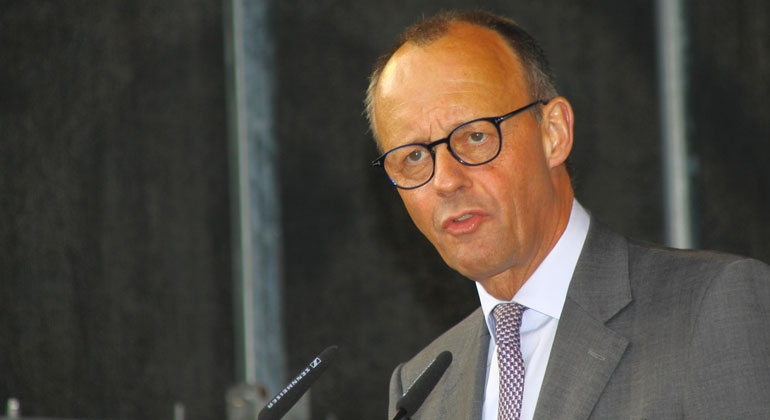Will Friedrich Merz still become climate chancellor?
Climate protection is the issue of survival for humanity. Is this issue of the century sufficiently addressed in the new coalition agreement?
Germany is to become climate-neutral by 2045 as previously planned. But how is that supposed to happen?
New gas-fired power plants are to be built. But natural gas is also a fossil fuel and has a similar impact on the climate as coal or oil. Anyone who still relies on fossil fuels has not understood the signs of the times. The future belongs to renewable energies, which must be expanded more quickly. In addition, energy efficiency and energy saving are important. Why do we always act too late?
The new coalition wants to abolish the controversial Heating Act (Building Energy Act). This intention is to be criticised for reasons of climate protection. But the critics forget that even Friedrich Merz once said: ‘The heat pump is a fascinating idea… Actually, a much higher number of heat pumps should have been installed in 2023.’ That’s what the future chancellor said when he opened Enpal’s heat pump academy in Blankenfelde-Mahbow, Brandenburg, in June 2024.
To the surprise of many, Merz also said at the time: ‘We fully support this heating transition. We agree that we in Germany must achieve the goal of getting 100 percent away from fossil fuels.’
Even if many of his critics today don’t think so, Friedrich Merz might yet become climate chancellor.
One of the key goals of the coalition agreement is to reduce electricity costs and cap network charges for consumers and businesses. However, this is only possible with affordable renewable energies.
The environmental organisation Campact criticises: the coalition government reserves the right to lower the expansion targets for wind power and delay the coal phase-out. At the same time, they want to build more gas-fired power plants and allow the controversial storage of CO2. Instead of relying on renewables and hydrogen-powered power plants, the new government is creating an infrastructure that will make us dependent on fossil gas for decades to come.
The new coalition agreement contains the word ‘future’ 68 times. The agreement between the CDU/CSU and SPD also announces a new heating law. And worldwide, we are currently experiencing a boom in renewable energies. China and India are showing how renewables can be implemented more quickly.
Other environmental organisations are criticising the coalition agreement for the time being: Greenpeace believes that in many areas, efficiency and climate justice are being neglected. Germanwatch says there is too little money for international cooperation and development, and Oxfam is rightly criticising the abolition of the supply chain law.
It would be in the interest of future generations if the CDU and SPD were to make further improvements in climate protection over the next four years. The right response to Trump and Putin is the rapid expansion of renewable energies. Please do not capitulate in the face of Trump’s climate negligence and Putin’s gas and war policy.








